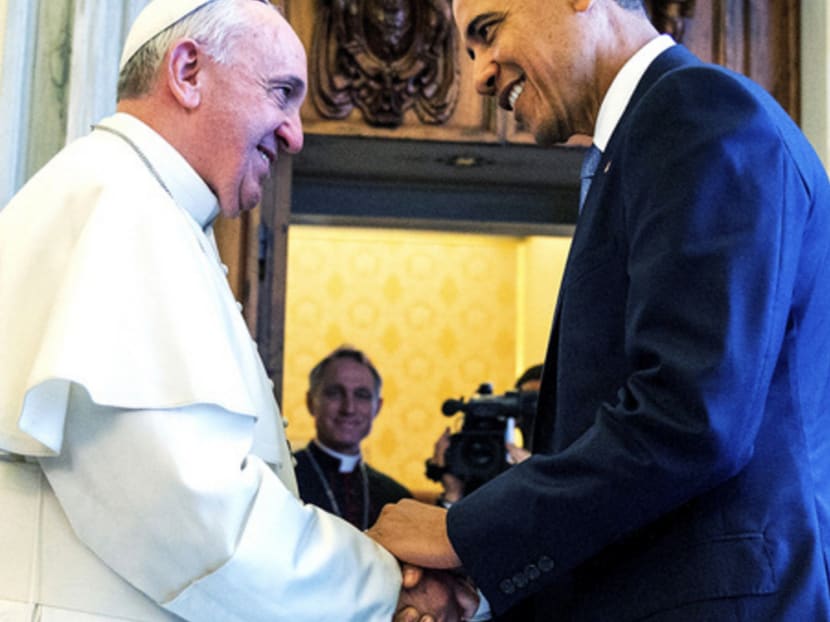Secret diplomacy led to US-Cuba thaw
WASHINGTON — Fresh off his 2012 re-election victory, President Barack Obama summoned senior advisers to a series of meetings, asking them to “think big” about a second-term agenda, including the possibility of new starts with long-standing foes of the United States such as Cuba and Iran.

Pope Francis
first raised the
possibility
of a Cuban
rapprochement with Mr Obama when the two met at the Vatican in March. The pontiff later sent letters to Mr Obama and Cuban President Raul Castro
urging them to
end the decades-long freeze.
Photo: The New York Times
WASHINGTON — Fresh off his 2012 re-election victory, President Barack Obama summoned senior advisers to a series of meetings, asking them to “think big” about a second-term agenda, including the possibility of new starts with long-standing foes of the United States such as Cuba and Iran.
Two years later, after painstaking and secret diplomacy, efforts with Havana are in full swing. Wednesday’s announcement that the US and Cuba would normalise relations after more than 50 years of hostility suggests one of the last chapters of the Cold War may be closing.
This would not have been possible without the involvement of the Vatican. The US outreach to Cuba started cautiously in 2013, predicated on the idea that no improvement was possible unless Havana released American contractor Alan Gross, imprisoned in Cuba on espionage charges.
In their first conversation after Mr Obama named Mr John Kerry his Secretary of State, the two discussed Mr Gross’ incarceration and their broader dissatisfaction with America’s policy toward its neighbour.
Mr Kerry quickly enlisted the assistance of the Vatican, one of the few institutions in the world broadly respected in the US and Cuba. The Church’s help would prove significant.
Behind the scenes, Mr Obama began putting the wheels of his secret diplomacy in motion. In the spring of last year, the President authorised two senior aides to sit down with representatives of the Cuban government for exploratory talks. The Canadian cities of Ottawa and Toronto as well as the Vatican City hosted the talks.
Early this year, another powerful mediator entered the process: Pope Francis. The first Latin American pontiff raised the possibility of a Cuba rapprochement with Mr Obama in March, when the US President visited the Vatican. In summer, he sent Mr Obama and Cuban President Raul Castro letters urging them to end the decades-long freeze.
Mr Kerry, meanwhile, spoke four times via telephone over the same period with Cuban Foreign Minister Bruno Rodriguez. The calls focused on Mr Gross, senior administration officials said, with Mr Kerry telling the Cubans that if anything happened to the 65-year-old Maryland native that their chances of better relations with the US would be over. At the Vatican this fall, American and Cuban officials worked to finalise the deal.
Announcing the thawing of relations between the two countries, Mr Obama said he wanted to thank “in particular” the Pope, who happened to celebrate his 78th birthday on Wednesday. Mr Obama praised his “moral example, showing the world as it should be, rather than simply settling for the world as it is”.
The Pope sent “warm congratulations” to both leaders for their decision to re-establish diplomatic relations.
In a statement, the Vatican said it would remain engaged in negotiations as relations between the former enemies begin to develop. “The Holy See will continue to assure its support for initiatives which both nations will undertake to strengthen their bilateral relations and promote the well-being of their respective citizens,” the statement said. AGENCIES






